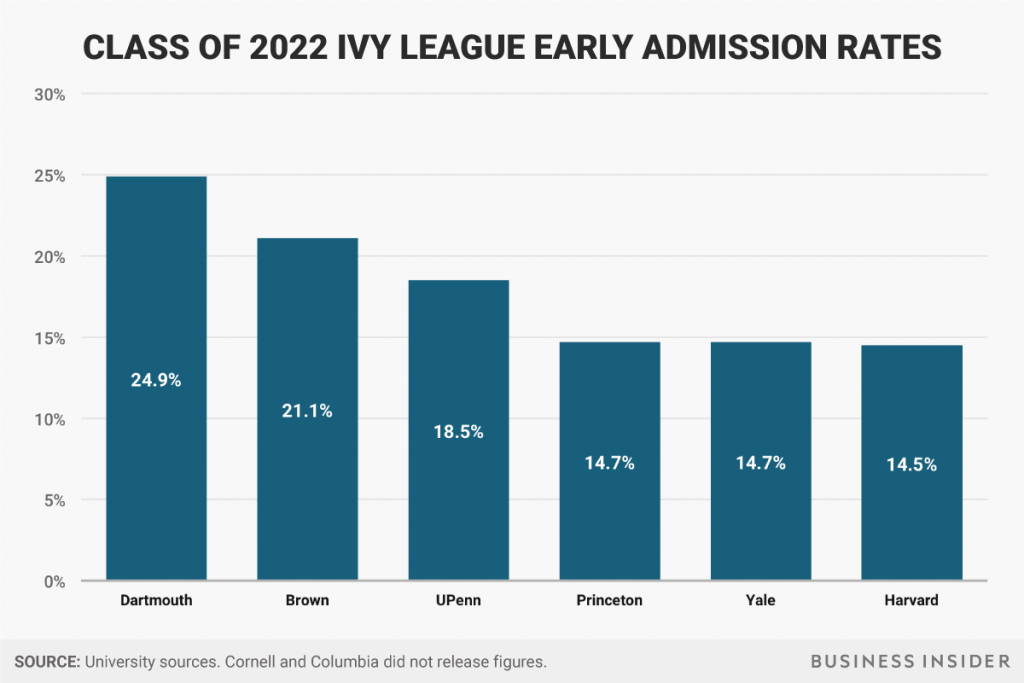Joel L.A. Peterson’s “secrets” aren’t really secrets to me, but they are to many students and their parents. I am re-posting his recent Huff Post article below as it is worth a read!
Secret 1 is especially important to remember when you start your college search and once you have applied and have started getting back decisions. There are SO many colleges, so many excellent colleges, that I honestly believe there is a place for everyone and where you land is often where you were meant to land.
Secret 2 is mostly true. Incomplete apps, late components of apps, a low test score or GPA (yes, even though colleges say they don’t do this, they do) are all good reasons for a quick deny on a file.
Secret 3 is very true and such an important thing for applicants and underclassmen approaching the process to keep in mind! Same goes for secret 4!
Now in a perfect world secret 5 is always true, but depending on the school and lots of other factors, sometimes spin goes unnoticed or simply isn’t a deciding factor. I think the point he is getting at here is that a disjointed profile where the applicant has not committed to activities over time or appears not to have committed themselves to anything meaningful at all, is never a good thing. Weak profiles will never stand up to profiles of students who have been active, engaged participants in their education and life outside of school.
Give the full article a read below!
As parents and students look ahead to education opportunities after high school graduation, the headlines overwhelmingly paint college admissions as bleak and increasingly competitive. Actually, there is much good news. There are more colleges than ever, and they are more varied and diverse than ever. In reality, most students who want to go to college can and do find numerous schools that will admit them and where they can find a happy fit.
SECRET NO. 1 – There is a college for almost everyone who wants to go to college.
According to the U.S. government, there are over 4,600 post-secondary degree granting institutions of higher education in the U.S. Approximately 2,900 of these are four-year colleges and universities and 68 percent of all high school graduates gain admission and enter a college each year.
Of the 2,900 four-year colleges, only about 150 are “Selective.” Selective, when used in college admissions, means that a college may turn away an applicant even if that student meets all admission standards and even if the school has not filled all slots. That leaves 2,750 four-year colleges that do not turn away students if they meet the school’s requirements and have admissions slots open. Many highly respected colleges are not “selective” institutions, but still offer a great education. And many “selective” schools are struggling to meet their enrollment goals and are eager to work with families to encourage students to be able to meet their standards and to choose them.
SECRET NO. 2 – College admissions is not a selection process, it is mostly a deselection process.
When college admissions offices are often inundated with thousands or tens of thousands of applications, admissions personnel look for reasons to deselect applications simply to bring the number of applications to be reviewed down to reasonable levels. This means that deadlines, application instructions, required information all count. There are no waivers for missing a deadline, not following an application’s directions, or failing to provide required information or documentation.
SECRET NO. 3 – Colleges do not want well rounded students, they want well rounded classes.
Attempting to have your student be involved in everything in an attempt to show that he or she is “well rounded” is usually a wasted effort. A college or university is a community with its own culture and traditions. Just like a town populated only by Albert Einsteins would not function, it would not function well if populated only by well-rounded jacks-of-all-trades, but who are expert in nothing. You want your town to have a well-rounded population of various experts, specialists, and talents. Colleges are no different; they want individuals who meet certain academic minimums, but who can bring an expertise, a talent, unique experiences or skills. This goes for every college. They all want a balance of genders (except women’s colleges), races (except for historically black colleges), hometowns, talents, skills, experiences, and cultures. Many colleges find this challenging, which can mean opportunities for the right students.
SECRET NO. 4 – The earlier you start preparing for college admissions, the better.
Showing a college that you offer something unique, that you have a specialty, expertise, or background requires you demonstrate a track record in these things. You can’t make up experience or a track record if you haven’t actually done things. Waiting until your junior or senior year to start planning and preparing for college admissions is often too late. You can’t go back to 7th or 9th grade and remake history. You can’t get back time in which you didn’t prepare for tests or participate in activities. The earlier a student starts to plan and strategically prepare for the day when the college application is due, the more – and better – actual facts, activities, skills, specialties, or accomplishments that student will be able to document. Often, good grades and test scores, with little other documented, sustained involvement or accomplishment, are not enough to gain acceptance at many colleges and universities.
Even with many colleges struggling to fill freshmen class numbers, without the track record, a student may not be able to show that he or she meets a need a college has to accomplish its admissions department’s goal of creating a well-rounded freshmen class.
SECRET NO. 5 – The smell of “spin” will nearly always guarantee rejection.
Nothing can replace truth, a documented track record, and the reality of results from good planning and years of preparation. Trying to spin a set of disjointed academic and extracurricular activities and participations into a tale of focus and passion – particularly at the last minute – is nearly always a recipe for rejection. Admissions officials see thousands of student applications. Fabrication and spin standout. Especially if the “voice” of the application – its essays, personal statement, and brag sheets – sound too adult, too parental, or too canned, a college admissions person will immediately put the application in the “deselect” pile, even if the grades and test scores are authentically good.
With 4,600 post-high school educational institutions, there is better news than many think about a student’s ability to earn admission to a college that will be a great fit for them. But even for schools that are not “competitive” or are struggling with finding balanced, well rounded entering classes, admissions professionals will reject fakery, puffery, and spin. Planning ahead, thinking and acting strategically over a number of years, performing well academically, being prepared for and doing well on the SAT or ACT, and having a well-documented track record beats a last minute scramble and creative spin any day of the week.








